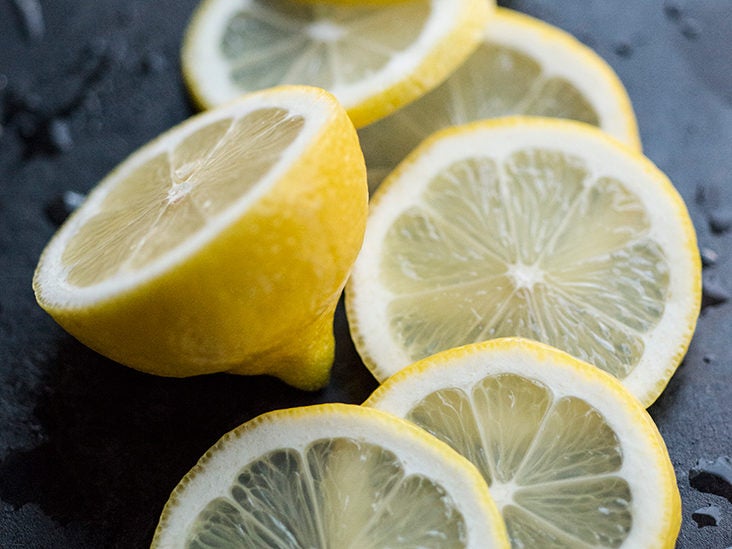Yes, lemon juice has the ability to kill fungus. Lemon juice is known for its numerous health benefits and has been used as a natural remedy for various ailments.
Among them is its antifungal properties, which make it effective in treating fungal infections. Lemon juice is a natural astringent that creates an acidic environment that is hostile to fungi. It also contains limonene, which is a natural fungicide. Applying lemon juice directly to the affected area or including it in your diet can help in fighting off fungal infections.
Note that lemon juice is not enough to treat severe infections. It should be used alongside other treatments recommended by a healthcare professional.

Credit: www.medicalnewstoday.com
The Science Of Lemon Juice
Does lemon juice kill fungus? This is a question that has been asked time and again due to the natural antifungal properties of lemons. The active ingredients in lemon juice can work to eradicate fungus, and many are turning to this alternative treatment.
Let’s delve into the science of lemon juice and find out if it can indeed eradicate fungus.
Chemical Composition Of Lemon Juice And Its Antifungal Properties
Lemons are a natural source of citric acid, ascorbic acid, and limonene. These substances have antifungal properties that work to eradicate fungi in various ways.
- Citric acid: Lemon juice contains approximately 5% citric acid, making it acidic in nature, which inhibits the growth of fungi.
- Ascorbic acid: The high levels of ascorbic acid (vitamin c) enhance the body’s immune system, which can help fight against fungal infections.
- Limonene: This organic compound present in lemon peel oil also has antifungal properties and can penetrate the cell walls of fungi to kill them.
How Lemon Juice Attacks Fungus: Mechanisms Of Action And Effectiveness
Lemon juice can rid the body of fungi, and it works in several ways.

- Lemon juice’s acidic nature can lower the ph of the area where the fungus is present, creating an unfavorable environment for the fungi.
- Lemon juice can penetrate the cellular membrane of the fungus and disrupt its integrity, causing it to die.
- Lemon juice can prevent biofilm formation in the fungus. Biofilm is a layer of microorganisms that protects the fungi from the body’s immune system and other treatments.
Due to these mechanisms of action, lemon juice has proven to be effective in killing several types of fungi, including candida albicans, aspergillus flavus, and trichophyton mentagrophytes.
Benefits Of Using Lemon Juice Over Synthetic Antifungal Treatments
Lemon juice has numerous benefits over synthetic antifungal treatments.
- Natural: Lemon juice is a natural alternative to synthetic antifungal treatments, which can have side effects.
- Cost-effective: Lemon juice is readily available and cost-effective than synthetic antifungal treatments.
- Versatility: Lemon juice can be used both orally and topically and can be added to a variety of recipes for internal healing.
- Easy to use: Applying lemon juice is relatively easy, and it can be done at home without the need for medical supervision.
Possible Side Effects Of Using Lemon Juice And How To Avoid Them
While the use of lemon juice for fungal infections is generally safe, there are some possible side effects to consider. Lemon juice is acidic and can cause skin irritation and redness.
- Use diluted lemon juice: To prevent skin irritation, dilute lemon juice in water before applying it topically.
- Avoid leaving lemon juice on the skin for an extended period: Lemon juice can cause sun sensitivity, so it’s best to avoid exposure to direct sunlight after applying it.
- Rinse the mouth after consumption: Drinking concentrated lemon juice can cause erosion of the tooth enamel, resulting in tooth sensitivity and pain. Thus, it’s advised to rinse your mouth after drinking lemon juice to prevent tooth damage.
Overall, lemon juice has many antifungal properties that have proven effective in treating fungal infections. However, before starting any natural remedies, it’s important to consult with a medical professional to avoid possible complications.
How To Use Lemon Juice To Treat Fungal Infections
Preparation Of Lemon Juice For Treating Fungal Infections
Before beginning the treatment, it is necessary to prepare the lemon juice.
- Use fresh lemon juice squeezed from a lemon fruit
- Dilute the juice with water and apply it to the infected area
To prepare the juice:
- Wash the lemon thoroughly to remove any dirt and bacteria.
- Cut the fruit in half.
- Extract the juice using a juicer or squeezer.
- Strain the juice using a fine mesh strainer to remove any large pulp or seeds.
- Pour the juice into a clean bottle or container.
Different Fungal Infections That Can Be Treated With Lemon Juice
Lemon juice can effectively help in treating various fungal infections, including:
- Athlete’s foot
- Ringworm
- Jock itch
- Nail fungus
- Yeast infection
- Candida infection
Lemon juice has natural antifungal properties that work against fungi that cause these infections.
Detailed Instructions On How To Apply Lemon Juice To The Infected Area
Follow these detailed instructions to apply lemon juice to the infected area:
- First, clean and dry the affected area properly.
- Apply fresh lemon juice or diluted lemon juice to the infected area using a cotton ball or swab.
- If the application causes any itching or burning sensation, rinse the area with water immediately.
- Let the area air dry for 5-10 minutes.
- Repeat the treatment twice a day every day until the infection disappears.
Precautions To Take When Using Lemon Juice To Treat Fungus
While using lemon juice as a natural remedy for treating fungal infections, take the following precautions to avoid any complications:
- Do not apply concentrated lemon juice directly to the skin as it may cause skin irritation.
- Lemon juice can make your skin sensitive to sunlight; wear protective clothing or sunscreen when going outside.
- If you suffer from any skin allergies or sensitivity, conduct a patch test to determine the effectiveness of the remedy on your skin.
- Do not use lemon juice as a sole medication for serious infections; consult a doctor for medical intervention.
By following these simple steps and precautions, you can safely eliminate fungal infections using lemon juice as a natural remedy.
Conclusion
Lemon juice has proven to be an effective natural remedy for various types of fungal infections. The antifungal properties found in lemon juice can control the growth and spread of fungus, providing relief to those suffering from this condition. Using lemon juice on your skin can help, but be careful because it may cause irritation or sensitivity in some people.
Furthermore, it is not always a substitute for medical treatment in severe cases. When used alongside conventional treatments, lemon juice can complement the effectiveness of anti-fungal medicine. As with any health concern, it is always best to consult with a healthcare professional for an accurate diagnosis and treatment plan.
Incorporating natural remedies, like lemon juice, can aid in the healing process and promote a healthy body.

